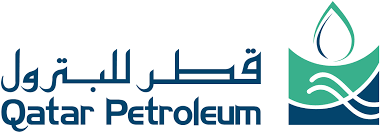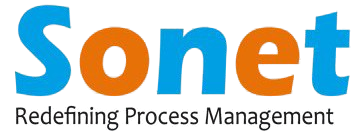Nashik Smart City School Campus Automation Project

Overview
Ras Laffan Emergency and Safety College (RLESC), designed by Qatar Petroleum (QP) with the Ministry of Interior (MOI), is the central location for developing customized training programs and courses, competency development specifically for Qatari National trainees and others intending to work for the country’s energy and industry. This partnership sees RLESC as one of the key drivers in the embedding of Qatar’s vision for the development of a competent workforce with the required skills, knowledge and competencies to ensure the country’s energy, industry, and effective related emergency management services.
Texas Engineering Extension Service (TEEX), as a valued component of the Texas A&M University System, was contracted to provide Pro-Board certified and non-certified training programs for RLESC. These include both academic and vocational training programs along with language programs intended to prepare high school graduates for careers with QP in support and technical/clerical areas and as pathways to further degree studies in Qatar and throughout the world.
Challenges Faced
The ambitious scope of the RLESC project presented several operational challenges that needed to be addressed to ensure its success:
- Complex Program Management:
The RLESC required a comprehensive, web-based interface to manage the diverse range of programs, participants and infrastructure components. This included the handling of enrollment processes, sales and marketing efforts, student and staff profiles, course design, certificate and document generation, library management, audit trails and the logistics of accommodation and transport.
- Customization and Flexibility:
QP needed a system that allowed for a high degree of customization at the user interface level, enabling modifications without altering the underlying schema or source code. This flexibility was crucial for adapting to the evolving needs of the training programs and ensuring user satisfaction.
- Efficient Data Processing:
The solution needed to provide rapid response times for data inputs, report generation and query handling, ensuring that the system could efficiently manage large volumes of data while maintaining accuracy and reliability.
- Secure Data Hosting:
All software, hardware and databases were required to be hosted within QP’s data center in Doha, ensuring the security and confidentiality of the sensitive information handled by the RLESC.
Solution Provided
To address these challenges, Sonet Microsystems, in partnership with Infoventures, implemented the eSCOP (Enterprise Solution for Campus Operations and Processes), a proprietary solution tailored to the specific needs of the RLESC.
- Automated Solutions:
The eSCOP system provided an integrated platform that automated the management of students, faculty and administrative processes, offering easy access to relevant data across multiple departments. This automation reduced the manual effort required for data entry and processing, improving efficiency and accuracy.
- Streamlined Processes:
eSCOP facilitated the integration of various departments within the RLESC, streamlining processes and ensuring tight control over operations. This integration allowed for better coordination between different functional areas, enhancing overall productivity and management.
- Enhanced Transparency and Control:
The system’s comprehensive reporting and audit trail features raised the level of transparency in operations, enabling QP to monitor and control activities more effectively. This transparency contributed to increased trust among stakeholders and improved decision-making capabilities.
- Customization and Scalability:
eSCOP’s user-friendly interface allowed for extensive customization, enabling QP to modify the system according to their specific requirements without needing to alter the core system. This flexibility ensured that the solution could evolve with the changing needs of the RLESC.
Implementation Process
- Needs Assessment:
Sonet Microsystems conducted a thorough assessment of the RLESC’s operational requirements, identifying key areas where automation and system integration would deliver the most value. This phase involved close collaboration with QP and TEEX to understand the specific challenges and objectives of the training programs.
- Customization and Development:
The eSCOP system was customized to meet the unique needs and scope of the RLESC, with a focus on enhancing user experience and operational efficiency. The development process included the integration of multiple functional modules, such as enrollment management, course design and certification processes, into a single cohesive platform.
- Deployment and Training:
The system was deployed in phases, with initial rollouts focusing on critical functions such as student enrollment and course management. Sonet Microsystems provided comprehensive training to RLESC staff to ensure they could effectively utilize the system and leverage its full capabilities.
- Ongoing Support and Optimization:
Post-deployment, Sonet Microsystems continued to offer support and system optimization services, addressing any issues that arose and ensuring that the system remained aligned with the evolving needs of the RLESC.
Benefits Realized
- Improved Operational Efficiency:
The automation of key processes reduced the administrative burden on RLESC staff, allowing them to focus on delivering high-quality training programs. The system’s rapid response times and efficient data processing capabilities contributed to smoother operations.
- Enhanced Data Management and Reporting:
eSCOP’s integrated data management features enabled QP to maintain accurate and up-to-date records of student progress, faculty performance and operational metrics. The comprehensive reporting tools provided valuable insights that supported informed decision-making.
- Increased Transparency and Accountability:
The system’s audit trail and reporting features enhanced transparency, making it easier for QP to monitor operations and ensure compliance with internal policies and external regulations. This transparency improved accountability at all levels of the organization.
- Scalability and Future-Proofing:
The customizable nature of the eSCOP system ensured that it could scale with the growth of the RLESC, accommodating new programs, participants and operational requirements. This scalability positioned the RLESC for continued success as it expanded its training offerings across the MENA region.
Key Outcomes
- Seamless Integration Across Departments:
The eSCOP system successfully integrated multiple departments within the RLESC, fostering collaboration and improving overall operational efficiency.
- Higher Quality Training Programs:
With streamlined processes and better data management, the RLESC was able to enhance the quality of its training programs, providing participants with a more effective and engaging learning experience.
- Stronger Operational Control:
The system’s tight control mechanisms enabled QP to maintain high standards of operation, ensuring that the RLESC met its goals of delivering top-tier training and development services.
Conclusion
The implementation at the Ras Laffan Emergency and Safety College is completed on time, delivering success in the face of tough, complex operational challenges. Sonet Microsystems automated the existing processes at RLESC, increased transparency, and offered a scalable platform for future growth, emplacing the power in the hands of Qatar Petroleum together with RLESC to realize their vision of growing a highly skilled workforce for the energy and industry sectors. This project not only supports the professional development of Qataris but also reinforces the stature of the country as a leader in the MENA energy sector.



